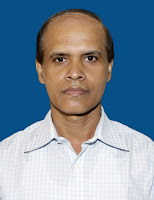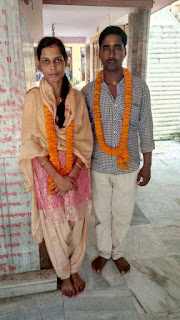NHRC Conference on implementation of the National Food Security Act, 2013 in relation to children & lactating mothers and pregnant women concludes with several important suggestions
NHRC Conference on implementation of the National Food Security Act, 2013 in relation to children & lactating mothers and pregnant women concludes with several important suggestions
New Delhi, 27th October, 2017
The day-long Conference organized by the National Human Rights Commission on the implementation of the National Food Security Act, 2013 in relation to children & lactating mothers and pregnant women concluded with several important suggestions.Earlier, inaugurating the Conference, Mr Justice H. L. Dattu, Chairperson, NHRC said malnutrition continues to haunt India despiteand economic growth and the two biggest nutrition programmes, Integrated Child Development Services, ICDS and Mid Day Meal programme.
Justice Dattu said that the Commission would like to know from the State Governments whether they have been strictly following the orders of the Supreme Court banning contractors in supply of supplementary nutrition under ICDS? Have they made adequate funds available for full implementation of the Maternity Benefit Scheme? Whether the Mid Day Meal, MDM budget is inflation driven or not and whether schools have proper buildings and infrastructure with the facilities for cooking, drinking water and storage of food grains?
Post discussions,the important suggestions on Mid- Day Meal Scheme are as follows:
1) Any unutilized fund of Mid Day Meal, MDM scheme due to the reasons like non-availability of cooks, ration, natural calamities, absence of students, litigations etc should be utilized for the targeted beneficiaries in the same year. No fund in any circumstances may be diverted for any other scheme.
2) Cooking cost norms, honorarium of cooks and helpers, transportation costs, LPG etc to be rationalized and appropriately enhanced periodically.
3) The funds allocated for Management, Monitoring and Evaluation (MME) to be rationalized and appropriately enhanced periodically.
4) Social audit and evaluation by third party (like civil society/domain expert/social audit directorate under MGNREGA) should be conducted annually for each district and the social audit reports should be published at the state portals.
5) The action taken on these social audit reports should also be published at the State portal.
6) In the Social audits, special attention should be paid to the Particularly vulnerable Tribal Groups, SC/ST hamlets, nomadic and de-notified tribes, migrant workers’ families, remote islands, desert settlements, frontier areas, and forest villages and so on.
7) The site plan of the schools should have earmarked kitchen, water facility, sanitation facility and washing area for utensils
8) In order to enhance the nutritional content of the food, protein rich food like eggs and milk should be included in the meal, according to the local cultural preference.
9) No child should be excluded from the benefit of mid day meal because of non-linking of Aadhaar because the child cannot be deprived for no fault of his/her.
10) As far as possible kitchen gardens should be encouraged in the school premises.
11) Evolve a scheme to provide mid day meal during the vacation/ holidays.
Important suggestions on Nutritional Support to Pregnant Women and Lactating Mothers and Children up to 6 years are as follows:
- The recent move to go in for cash transfers rather than THR/hot cooked meal may be counterproductive and must not be encouraged except in very exceptional cases, as it will defeat the basic objective of providing nutrition and cash can easily be transferred to other expenditure.
- Dilution of maternity benefits as provided in the NFS Act should not be permitted by clubbing with Janani Suraksha Yojana or similar entitlements. Also, the conditionalities of Prime Minister’s Maternity Benefit Scheme are in contradiction to the provisions under Section 4(b) of the NFS Act and the previous recommendations of the NHRC to this effect.
- State Governments should take proactive steps to take innovative mechanism to address the issue of migrant population.
- Anganwadi centre should be operated through innovative approach/community participation even for fewer numbers (e.g. Mobile units, mini Anganwadi centres etc.) to address the needs of left out/far flung/remote populations as far as possible
- The issue of sub optimal honourarium to Anganwadi workers and helpers in most States needs to be resolved by ensuring atleast minimum wage level as Government has to be model employer. Regular monthly payment should also be ensured.
- The coverage of children going to private schools also needs to be ensured as they may form a sizeable percentage which otherwise would not be covered and would adversely affect the incidence of malnutrition.
- The infrastructural gaps in terms of building, kitchens, drinking water supply/toilets should be resolved within a time limit of maximum three years in all States through sourcing of funds from different schemes and departments as has been successfully done in States like Kerala, Tamil Nadu etc.
- Adequate food testing facilities should be created preferably at District level by all States by utilizing public Health Department, Universities/Colleges etc.
- Fortification of salt and edible oil may be encouraged while at the same time greater examination is called for in the case of fortification of wheat flour keeping in view the production, supply, possible contamination, efficacy and cost of fortification etc.
- Convergence of critical departments/agencies such as Health and Family Welfare, WCD, Education, Water and Sanitation and Rural Development/Panchayati Raj needs to be ensured through proper training, coordination meetings, synchronised funding etc. under the direct leadership of District Collector.
- Food diversity as a source of balanced diet and micro nutrients etc. needs to be encouraged including kitchen gardens, sourcing of locally available fruits and vegetables.
- Innovative coordination and supervising mechanisms such as Mother’s Committee at Anganwadi level and local coordination committee at ICDS available in several States can be extended to all States.
- The present food which is being served does not guarantee the protein intake envisaged. Ways and means must be found and implemented to ensure that each beneficiary child and pregnant women gets his/her quota of protein everyday and a simple solution to protein intake is supplement of eggs as part of SN at Anganwadi centres and for those who are vegetarian milk can be provided.
- Each Anganwadi must have arrangement including educational literature etc. for the Pre-School education of the child attending the same
- Proper and transparent selection of Anganwadi workers imparting a basic training to them followed by regular refresher training. This will require setting up of Anganwadi training centres in each State.



Comments
Post a Comment